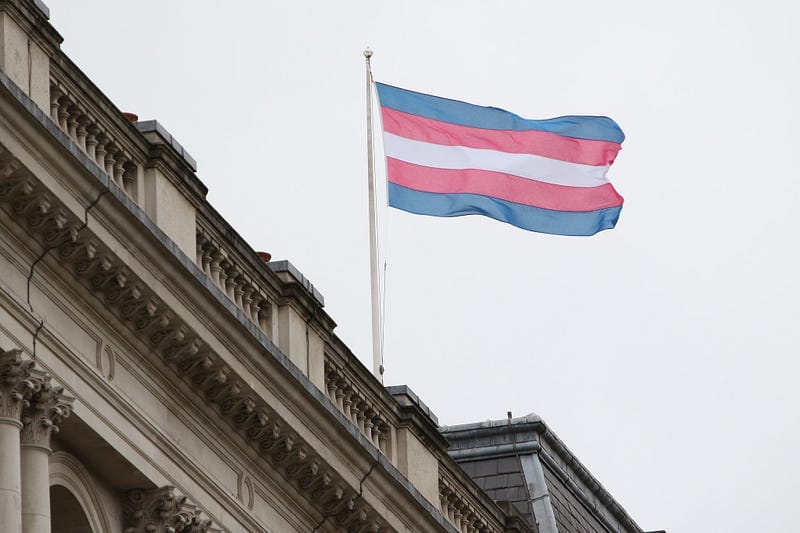The overthrow of Roe v Wade is a gender critical victory
Gender critical activists claim they are fighting for women, but their quest to control trans lives depended on wiping out the right to…

Gender critical activists claim they are fighting for women, but their quest to control trans lives depended on wiping out the right to bodily autonomy
Last Friday, the US Supreme Court wiped out the constitutional right to abortion for American women and trans people who can get pregnant. The ruling threw the American political scene into chaos. In some red states that had trigger laws banning the practice upon a ruling overturning Roe v Wade, patients who were literally sitting in clinic waiting room before their abortion had their procedures immediately cancelled.
Cisgender women and trans people capable of getting pregnant in US states that have banned abortion are no longer free. Not only do they not have control over their own bodies, but cisgender men now have unlimited influence over the lives of any woman they can manage to impregnate.
Abusive men who sense their girlfriend wants to break up now just has to slip one past the goalie and they are now a permanent figure in that woman’s life. It’s a form of control.
There can be no doubt that the decision is a disaster for women’s rights in the US, and will no doubt motivate anti-choice forces in Europe and elsewhere across the globe.
But bizarrely, many gender critical feminists who claim the mantle of being the fiercest defenders of women’s rights were oddly silent after the ruling. Perhaps most famously, JK Rowling, who has spent innumerable hours ranking about how trans women are an inherent threat to women’s safety, and platforming detransitioners and saying that transition care for trans minors should be completely banned, has been completely silent in the aftermath of Roe’s demise.
Some British gender critical feminists have oddly claimed that Roe v Wade fell because of trans people, an utterly ridiculous and disqualifying theory that should be laughed out of intellectual arguments. They claim that not being able to define the word “woman” means that it’s impossible to campaign for abortion rights.
But society deciding that trans women should be called men and trans men should be called women won’t make Samuel Alito magically change his mind on the issue he built his whole life around. In fact, the justice basically already said that he believes trans women are men and trans men are women in his dissent in Bostock.
Some GCs have posted a screenshot from Alito’s ruling in Dobbs which reiterates that under US law, the right to abortion is not a sex-based right, implying that this is the case because of trans people. In actuality, the citation was for a 1974 case which had nothing to do with trans people.
Former SCOTUS justice Ruth Bader Ginsburg had long argued that abortion access should be considered a equal protection legal issue, but the case cited by Alito ruled that it is not an equal protection issue and therefore not a sex-based right. Many trans people, like myself, believe that abortion access should, in fact, be an equal protection legal question.
Beyond the public gender critical fallout in the wake of Roe’s overturning, gender critical activists should actually be ecstatic with the court. Their whole agenda now has the legal green light in the US.
Any ban or legal restriction on access to gender affirming care, as they constantly advocate for, would have run into Roe as a significantly difficult precedent to overcome. That’s because Roe established an implied right for individuals to have privacy from the government.
In other words, you can’t ban gender affirming care for anybody, if the government can’t butt its nose into your personal private medical decisions. This is what made gender criticals into obvious allies for the far right. They both want the government power to control the lives of minorities they disapprove of.
The wiping out of Roe now paves the way for a truly gender critical agenda where everyone is permanently tied to their biology, damn the consequences.
I’d even go so far as to say that the overturning of Roe is perhaps the biggest legal win in the history of the gender critical movement. Congratulations, “feminists!”



